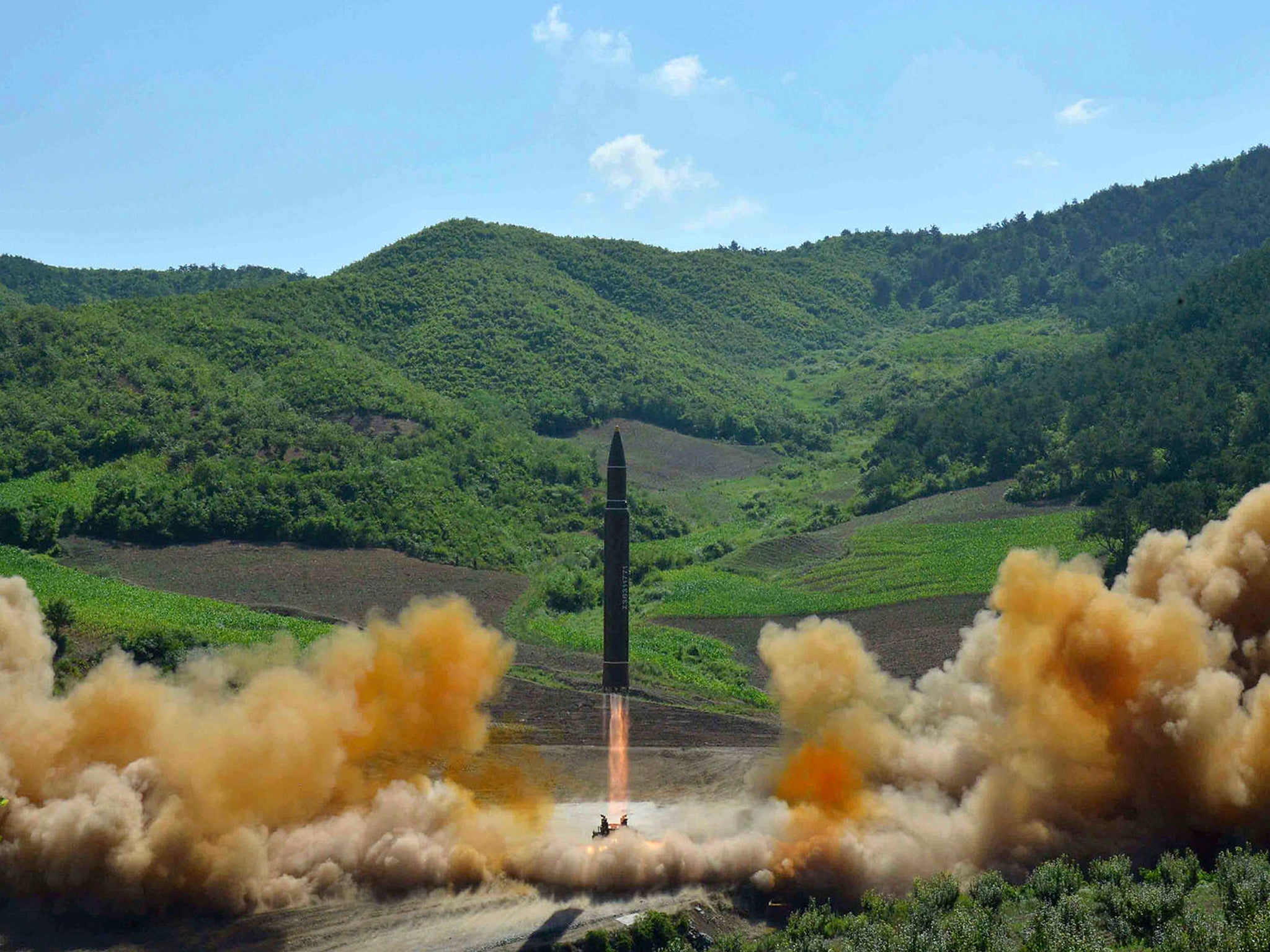Nobel committee: Nuclear powers must start 'serious' disarmament talks
Risk of war 'greater than it has been for a long time,' says panel president

Your support helps us to tell the story
From reproductive rights to climate change to Big Tech, The Independent is on the ground when the story is developing. Whether it's investigating the financials of Elon Musk's pro-Trump PAC or producing our latest documentary, 'The A Word', which shines a light on the American women fighting for reproductive rights, we know how important it is to parse out the facts from the messaging.
At such a critical moment in US history, we need reporters on the ground. Your donation allows us to keep sending journalists to speak to both sides of the story.
The Independent is trusted by Americans across the entire political spectrum. And unlike many other quality news outlets, we choose not to lock Americans out of our reporting and analysis with paywalls. We believe quality journalism should be available to everyone, paid for by those who can afford it.
Your support makes all the difference.The Nobel committee has warned of a rising risk of nuclear war and called on the world's powers to start "serious" disarmament talks.
The board awarded the 2017 Nobel Peace Prize to the International Campaign to Abolish Nuclear Weapons (ICAN) for its work "to draw attention to the catastrophic humanitarian consequences of any use of nuclear weapons".
It called the group's efforts to bring about a treaty-based ban on the weapons "ground-breaking".
“We live in a world where the risk of nuclear weapons being used is greater than it has been for a long time,” Norway's Nobel committee president Berit Reiss-Andersen said.
Moves by nuclear powers to modernise their nuclear arsenals and attempts by states such as North Korea to procure new atomic weapons were increasing the risk, she said.
More than 100 nations in July signed a landmark disarmament accord, the UN Treaty on the Prohibition of Nuclear Weapons, yet the agreement does not include nuclear-armed countries such as the United States, Russia, China, Britain and France.
"This year's Peace Prize is also a call upon these states to initiate serious negotiations with a view to the gradual, balanced and carefully monitored elimination of the almost 15,000 nuclear weapons in the world," Ms Reiss-Andersen said.
The North Korean regime led by Kim Jong-Un has conducted increasingly sophisticated nuclear tests and has expanded its missile programme to include weapons that are potentially capable of striking parts of the United States.
Mr Trump has ridiculed Mr Kim, calling him "Little Rocket Man" and he warned North Korea it could face “fire and fury” like the world has never seen.
Asked by journalists whether the prize was essentially symbolic, given that no binding international treaty banning nuclear weapons has been reached, Ms Reiss-Andersen said “what will not have an impact is being passive”.
ICAN, which began in Australia and was officially launched in Vienna in 2007, describes itself as a coalition of grassroots non-government groups in more than 100 nations. The organisation said winning the prize was a "great honour".
"By harnessing the power of the people, we have worked to bring an end to the most destructive weapon ever created and the only weapon that poses an existential threat to all humanity," it said in a statement
"This prize is a tribute to the tireless efforts of many millions of campaigners and concerned citizens worldwide who, ever since the dawn of the atomic age, have loudly protested nuclear weapons, insisting that they can serve no legitimate purpose and must be forever banished from the face of our earth.
"It is a tribute also to the survivors of the atomic bombings of Hiroshima and Nagasaki the hibakusha [Japanese survivors of atomic bombings] and victims of nuclear test explosions around the world, whose searing testimonies and unstinting advocacy were instrumental in securing this landmark agreement."
The committee sorted through more than 300 nominations for this year's award, which recognises both accomplishments and intentions.
The Norwegian Nobel Committee does not release names of those it considers for the prize, but said 215 individuals and 103 organisations were nominated.
Agencies contributed to this report
Join our commenting forum
Join thought-provoking conversations, follow other Independent readers and see their replies
Comments